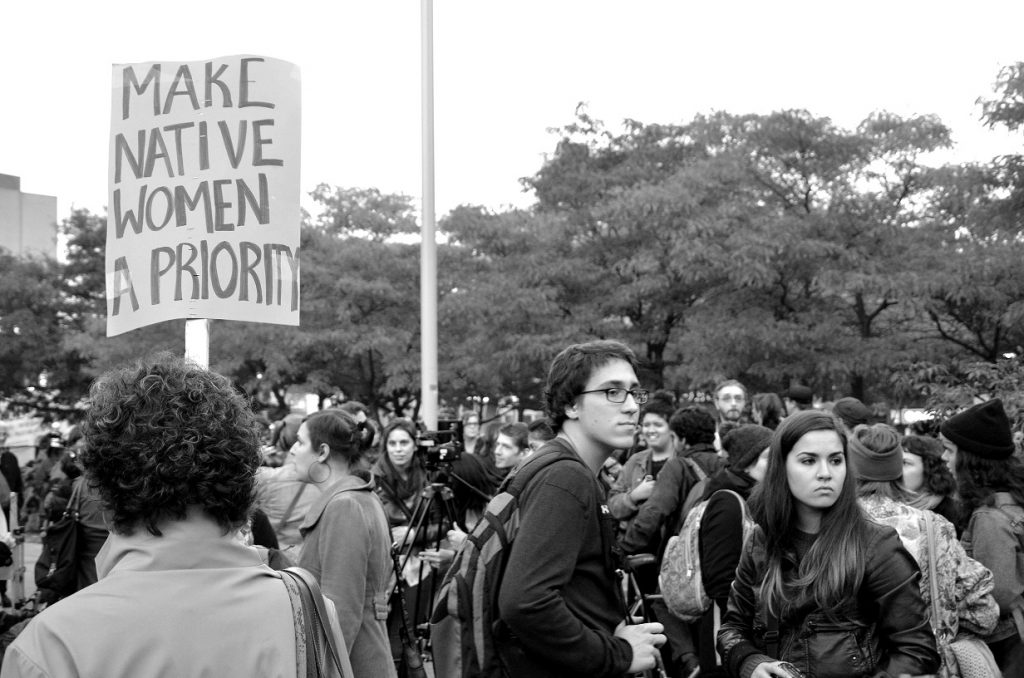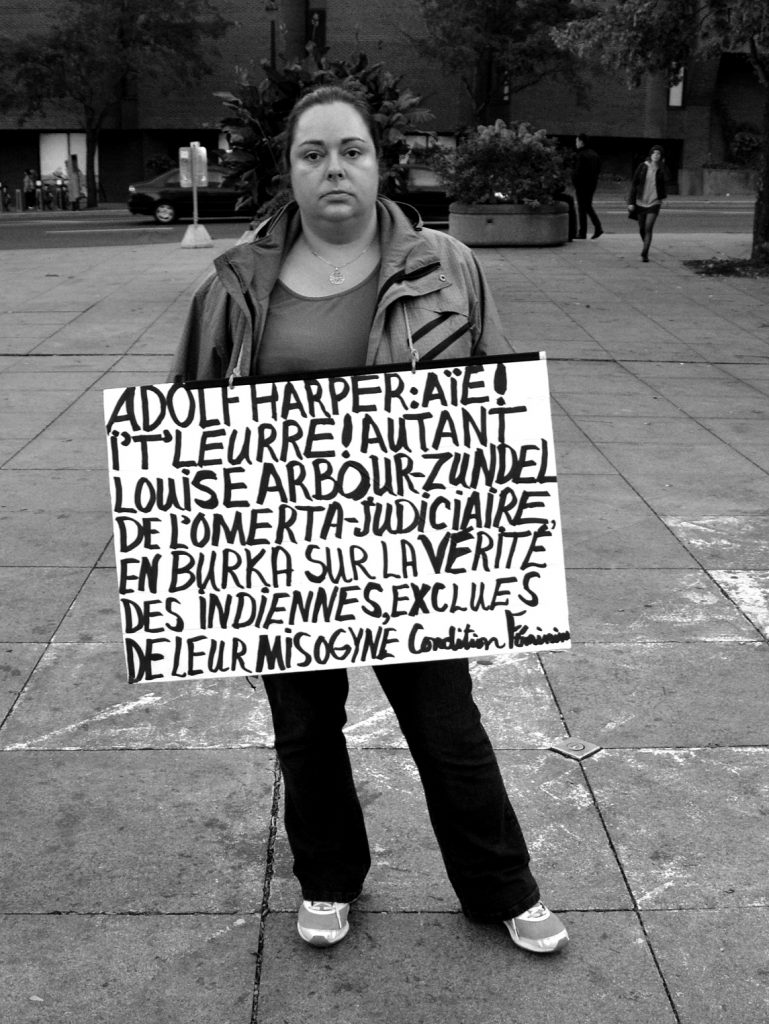
Hundreds of people gathered at Place Émilie-Gamelin to participate in the seventh annual Sisters in Spirit Memorial March and Vigil for Murdered and Missing Native Women Thursday evening.
The annual march is held on the same day throughout Canada in honour of Gladys Tolley, an indigenous woman who was fatally struck by a Sûréte du Québec police cruiser in the Algonquin community of Kitigan Zibi Anishinabeg near Maniwaki in 2001. Bridget Tolley, the daughter of the victim, founded the annual march and vigil in 2005.
Since 1980, there has been more than 600 documented cases of murdered or missing Native women and girls in Canada according to the Native Women’s Association of Canada. This year’s march in Montreal was co-ordinated by Missing Justice, an initiative of Concordia University’s 2110 Centre for Gender Advocacy, in hope of finding answers and raising awareness about the violence indigenous women face.

“I’m from northern British Columbia, and there’s this one highway called “the Highway of Tears” where a lot of native women have gone missing in the past 20 years. Somebody I went to school with went missing over there,” said Concordia University women’s and native studies student Jael Roy. “There’s this whole idea of the fact that this goes unnoticed and […] there’s no awareness whatsoever.”
People from various communities were in attendance to show their support and to denounce the injustice. The march was a call for change, a vigil to honour the victims and a demand for a more involved government. The federal government cut funding to Sisters in Spirit, a campaign of the NWAC dedicated to research and the protection of indigenous women, in 2011.
According to activist Denis Dubé, this ignorance is a historical trend.
“Native women were excluded from their tribes, from their territories, and weren’t allowed to possess land. They had to forget their language and learned not to teach it to their children if they didn’t want them to be hated,” he said. “Indians suffered a lot of abuse, through residential schools and what not, and this missing women case is something that we have to denounce, because justice is not being fair to natives.”
Viviane Michel, president of Quebec Native Women, explained that when indigenous women go missing, they don’t receive the same attention due to discrimination.
“They say that 600 women have gone missing, but I think there’s a lot more than that. There is discrimination in this,” she said. “The judiciary process is really slow when it’s a native woman that’s missing, and nothing is moving forward. We are here to denounce this injustice and discrimination towards native people.”
The peaceful cortege made it through the streets before the march arrived at Square Phillips where more speakers shared their thoughts, sung aboriginal songs, lit candles and observed a minute of silence in memory of the missing.
With files from Kalina Laframboise.




